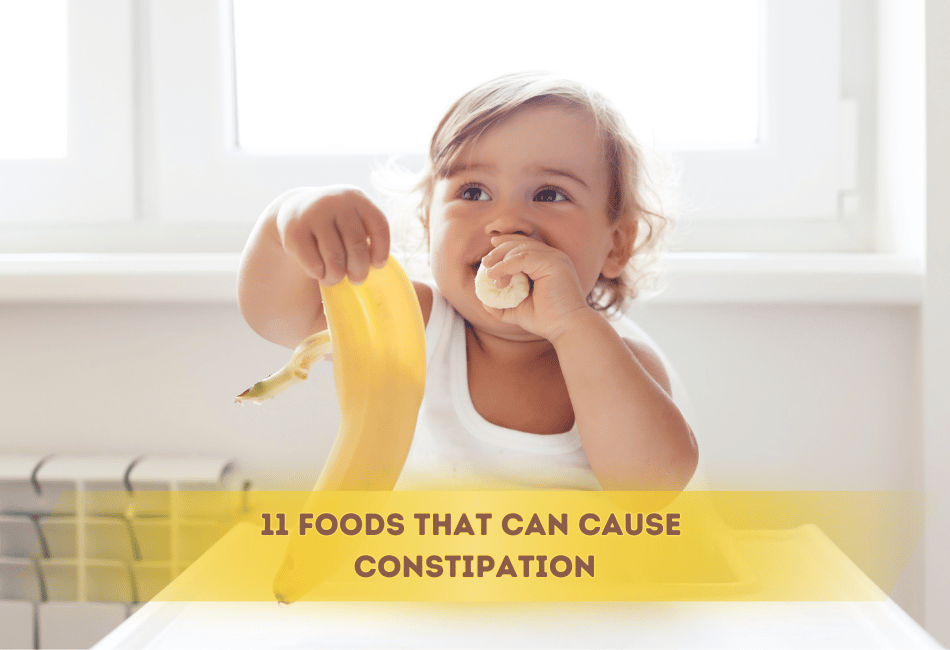
As your baby transitions to solid foods, their digestive system may face some challenges. One of the most common issues parents face during this stage is constipation. While some baby foods can help alleviate constipation, others can contribute to it. Understanding which baby foods can cause constipation is key to helping your baby stay comfortable and healthy.
What Causes Constipation in Babies?
Constipation in babies can be caused by several factors, including changes in diet, dehydration, and the introduction of new foods. When your baby starts eating solids, their digestive system may struggle to adjust to the new textures and fiber levels. Some foods, especially those that are low in fiber or high in starch, can slow down digestion and lead to constipation.
Baby Foods That Can Lead to Constipation
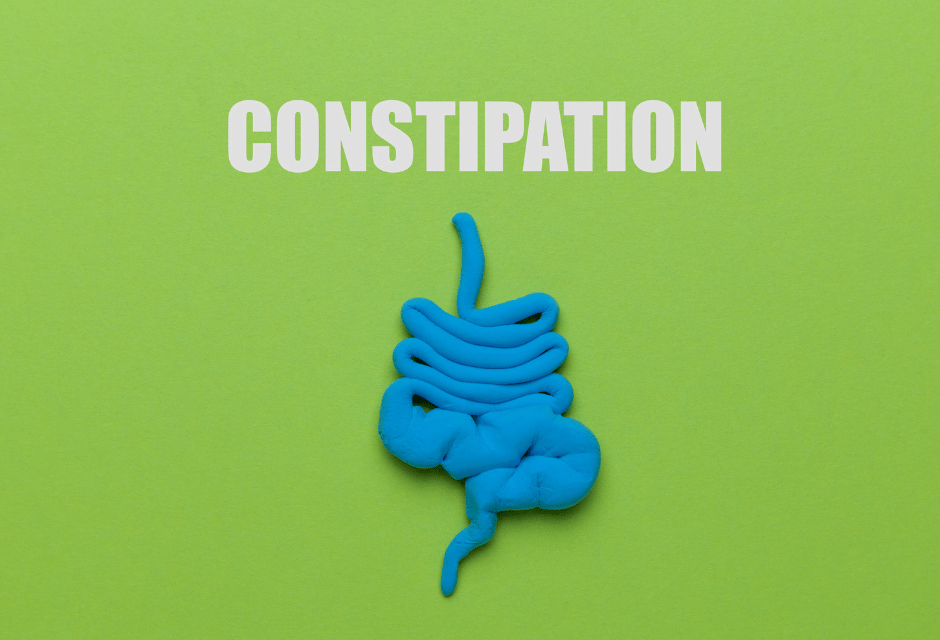
Here’s a list of foods that can cause constipation and tips on how to adjust your baby’s diet for better digestion:
- Bananas: While bananas are a great first food for babies, they can sometimes cause constipation if eaten in large amounts. They are low in fiber and can have a binding effect on the digestive system. If your baby is already prone to constipation, try limiting the number of bananas you offer and balance them with more fiber-rich foods.
- Rice Cereal: Many parents start with rice cereal when introducing solids to their babies. However, rice cereal is low in fiber and can lead to constipation if consumed in excess. Opt for whole-grain cereals like oatmeal or barley that provide more fiber and help support digestion.
- Carrots: Carrots are a healthy food choice, but when served in large amounts, they can cause constipation in some babies. Carrots are rich in starch, and without sufficient fiber, they can slow down your baby’s digestion. Try offering a variety of other vegetables, like peas or sweet potatoes, to keep things moving.
- Applesauce: While applesauce can be a great first food for babies, it can also cause constipation due to the way it’s processed. The fiber content in applesauce is lower compared to whole apples, which can make digestion more difficult for your baby. Offering fresh, pureed apples with the skin may be a better option.
- Cheese: Dairy products like cheese can sometimes cause constipation in babies, especially if consumed in large quantities. Cheese is low in fiber and can be difficult for some babies to digest. If you notice that cheese is contributing to your baby’s constipation, consider limiting it or offering dairy alternatives.
- White Bread: White bread is made from refined flour and lacks the fiber that whole-grain bread provides. Refined grains like those found in white bread can slow down digestion and lead to constipation. Opt for whole-grain bread or crackers instead, as these offer more fiber.
- Potatoes: While potatoes are a great source of carbohydrates, they are low in fiber, especially when peeled. When serving potatoes to your baby, try offering them with the skin on to increase fiber content, or pair them with other high-fiber foods.
- Peas (When Overcooked): While fresh peas are usually a great fiber-rich food for babies, overcooking them can lead to a loss of fiber. To avoid constipation, make sure to cook peas just enough to soften them, but not too long that they lose their nutritional value.
- Pasta: Like white bread, pasta made from refined flour is low in fiber and can contribute to constipation. You can offer pasta in moderation, but try to use whole-wheat pasta for added fiber to help promote better digestion.
- Canned Fruit: Canned fruits often contain added sugar and lack the natural fiber found in fresh fruits. Without fiber, they can slow down digestion and contribute to constipation. If you choose to offer canned fruit, make sure it’s packed in water or its own juice and serve it sparingly.
- Junk Foods: While not typically part of a baby’s diet, some parents may offer processed snacks like cookies or crackers. These foods often contain little to no fiber and can contribute to constipation. Stick to whole, natural foods as much as possible for better digestion.
Tips for Managing Constipation in Babies
If you notice that your baby is becoming constipated, here are a few tips to help ease the discomfort:
- Increase Fluid Intake: Make sure your baby is drinking enough water throughout the day, especially if they’re eating solids. Dehydration can contribute to constipation.
- Introduce More Fiber: Add fiber-rich foods to your baby’s diet, such as pureed prunes, pears, and peas. Fiber helps soften stools and promotes regular bowel movements.
- Offer a Variety of Foods: When introducing solids, try offering a wide variety of fruits, vegetables, and whole grains to ensure your baby’s digestive system is getting the nutrients it needs.
- Monitor Portion Sizes: Sometimes, simply reducing the amount of constipating foods your baby eats can help. Moderation is key, and balancing foods with higher fiber content can make a big difference.
If you’re looking for more tips on how to treat constipation in babies and provide relief, check out my in-depth guide on How to Treat Baby Constipation Naturally. I dive into remedies, helpful foods, and expert advice to ensure your little one feels comfortable again.
Engage with Me! Share Your Experience
Understanding which baby foods can cause constipation and adjusting your baby’s diet accordingly can help keep their digestive system healthy and avoid discomfort. With the right balance of foods, your little one will have a smoother transition to solids and a happier tummy!
Have you noticed certain foods contributing to your baby’s constipation? I’d love to hear your experiences. Share your tips or any questions you have in the comments below, and let’s support each other on this parenting journey!
FAQ: Foods That Can Lead to Constipation in Babies
Q1: Are bananas always bad for babies with constipation?
Bananas can sometimes cause constipation, but they are not harmful in moderation. If your baby is prone to constipation, try offering them less often and pair them with higher-fiber foods.
Q2: How can I tell if my baby is constipated?
Signs of constipation in babies include fewer bowel movements than usual, hard or dry stools, straining during bowel movements, or fussiness. If you’re concerned, it’s always a good idea to consult your pediatrician.
Q3: What foods can I give my baby to relieve constipation?
To relieve constipation, offer fiber-rich foods like pureed prunes, pears, peas, and sweet potatoes. Make sure your baby is also drinking enough fluids to help with digestion.
Q4: How can I prevent constipation when introducing solids?
Introduce solids gradually, and offer a variety of fiber-rich fruits, vegetables, and whole grains. Keep an eye on your baby’s reaction to each food, and ensure they are staying hydrated.
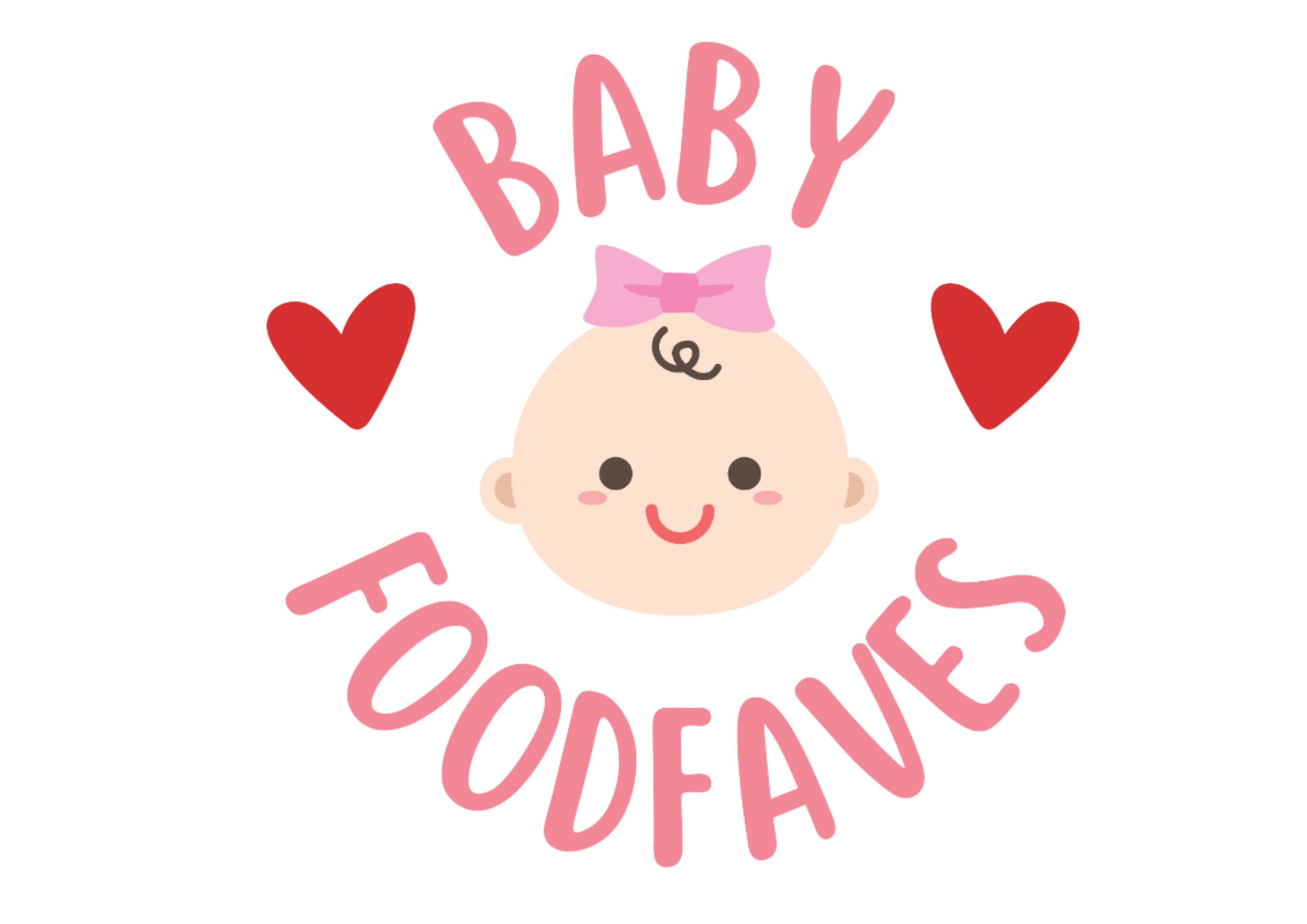


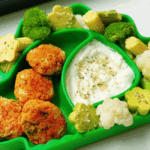
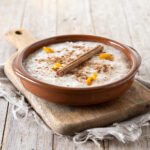

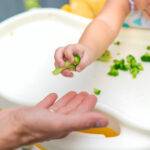



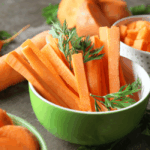


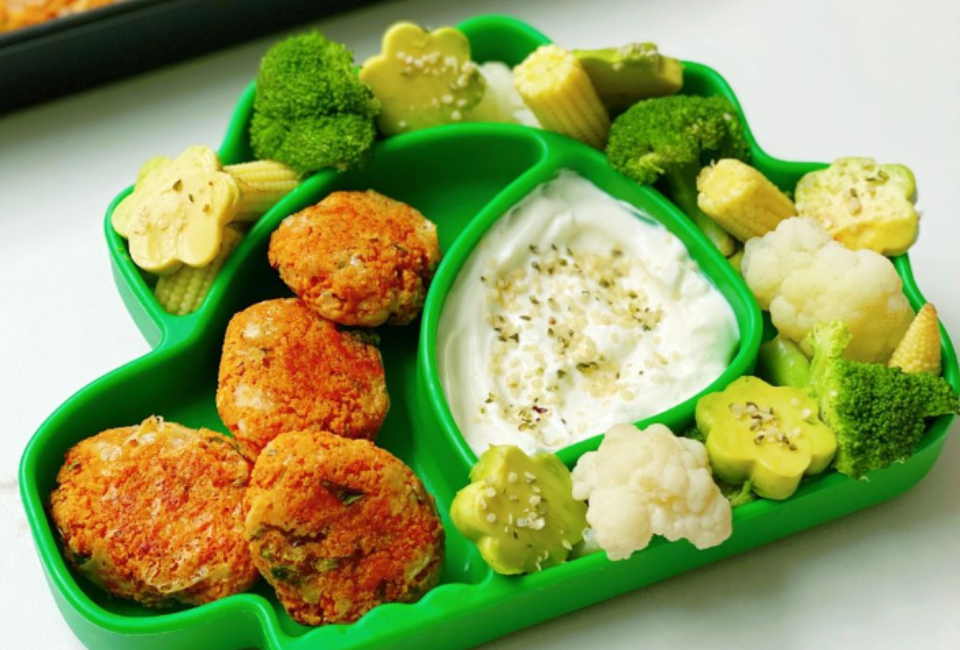
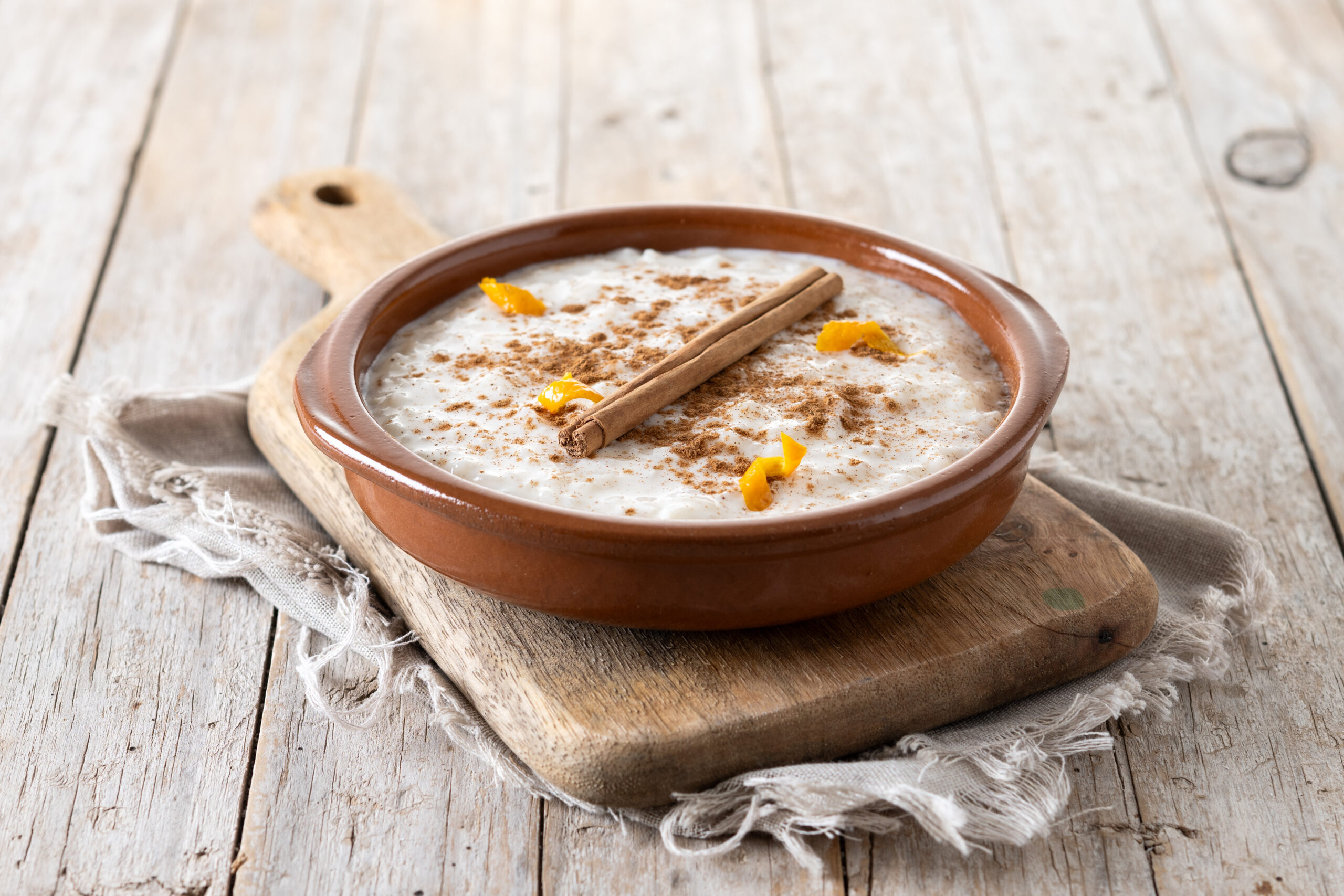
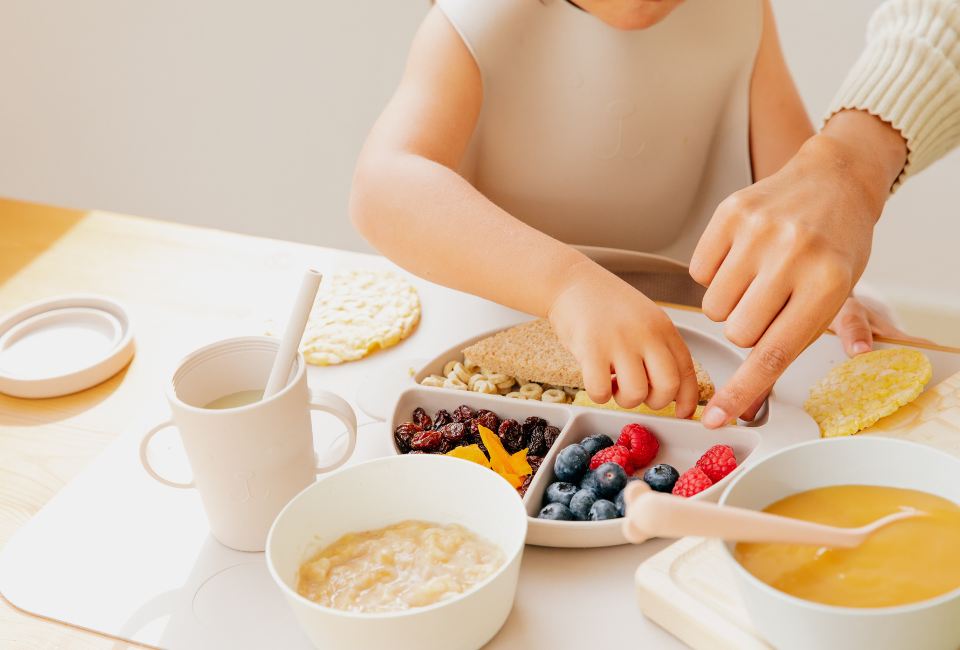
Leave a Reply